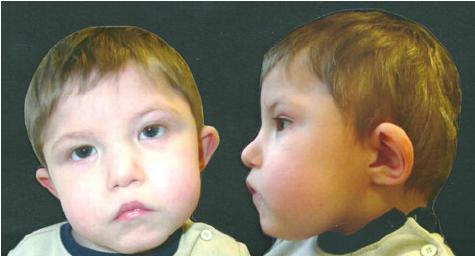A groundbreaking study led by researchers at UC Davis Health has shed new light on the molecular alterations linked to the rare genetic condition, 22q11.2 deletion syndrome or 22q. The research, published in the journal Metabolomics, identified unique biomarkers that could potentially distinguish patients with 22q from those without the condition, offering hope for early identification and intervention of psychiatric symptoms, such as psychosis, commonly associated with 22q.
People with 22q are afflicted by the absence of a segment of chromosome 22, which carries over 30 genes. This genetic loss can result in a range of health complications, including heart problems, psychosis, attention-deficit/hyperactivity disorder (ADHD), autism, and other conditions. However, it remains unclear which genes in the deleted region contribute to these symptoms.
The research team, led by Flora Tassone, a professor in the Department of Biochemistry and Molecular Medicine at UC Davis and senior author of the study, focused on the potential development of psychosis in patients with 22q. This condition, characterized by an inability to distinguish reality from fantasy, can impact up to 20% of 22q patients during their late teens to mid-twenties. Currently, there are no reliable diagnostic tests to predict which patients are at risk, making early intervention a challenge.
Tassone and her team aimed to investigate how these genetic losses affect the expression of proteins and metabolites (compounds produced by chemical reactions in cells) to better understand the underlying molecular mechanisms. By doing so, they hoped to identify potential biomarkers that could help predict psychosis risk in patients with 22q before symptoms manifest. These findings could also pave the way for the development of future treatments and targets to aid in prognosis.
While genetic testing can pinpoint specific deletions, the researchers sought to explore the broader implications of these genetic losses on the biological landscape. Their findings could represent a significant step towards early detection and intervention for psychiatric symptoms in patients with 22q.
*Note:
1. Source: Coherent Market Insights, Public sources, Desk research
2. We have leveraged AI tools to mine information and compile it




